Fired FBI official Andrew McCabe claims Durham report not a 'legitimate investigation': 'Nothing new here'
Andrew McCabe stood by the Mueller investigation and Russia probe into Trump after the Durham report implicated him for failing "to uphold" the FBI's mission of "strict fidelity to the law."
The Durham report marked the final chapter of a dramatic saga that began nearly seven years ago: the inception of Russiagate, and the launch of media careers of federal officials wrapped up in pushing the dubious collusion narrative.
Launched by the FBI in July 2016 as Crossfire Hurricane, the Robert Mueller investigation looked into whether there was any collusion between the Trump campaign and the Kremlin's election interference operations. The media followed every aspect of the probe with glee.
The controversy plagued Donald Trump's presidency as The New York Times and The Washington Post published bombshell after bombshell, often based on anonymous sources, all fueling the collusion narrative. In the end, although members of Trump's orbit were charged and convicted of various crimes, the DOJ found no basis that the Trump campaign coordinated with Russia. And as John Durham himself recently concluded, the origins of Crossfire Hurricane were based on "raw, unanalyzed and uncorroborated intelligence."
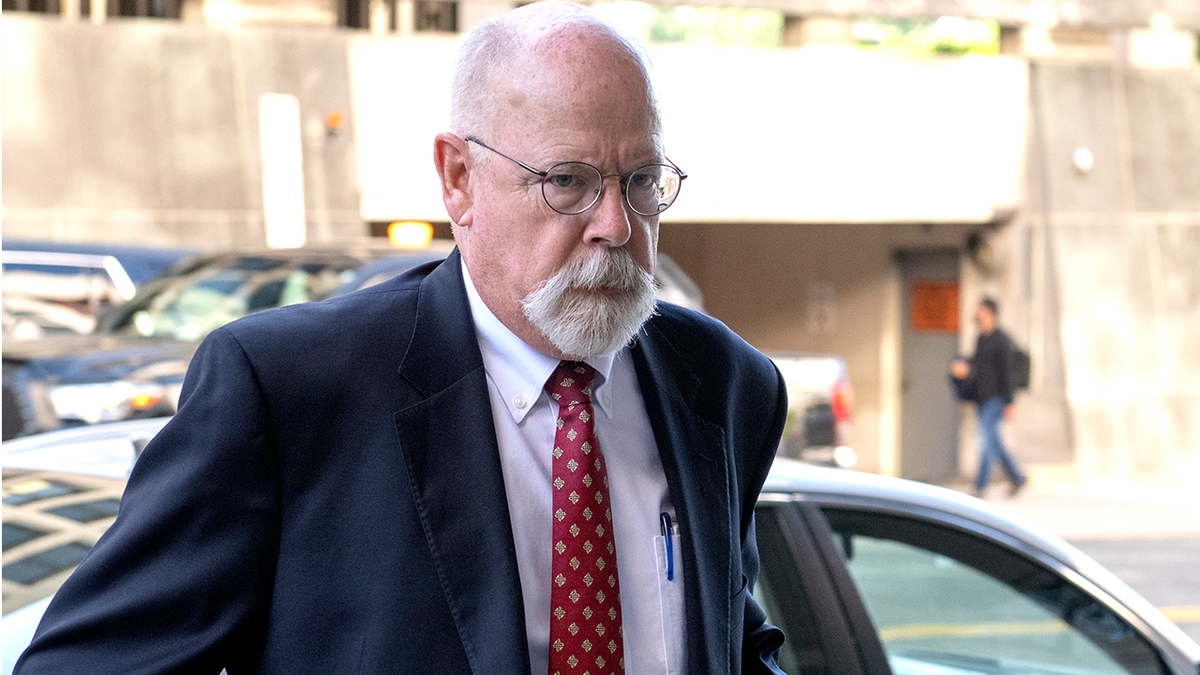
Special Counsel John Durham concluded that the Russia investigation should never have been launched since it was based on "raw, unanalyzed and uncorroborated intelligence. (Ron Sachs/Consolidated News Pictures/Getty Images)
Throughout the three investigations, there were several key figures that emerged and the reports issued by Inspector General Michael Horowitz and Durham in particular laid out their critical roles in Russiagate. Many of the those high-ranking officials were rewarded with cushy TV gigs and lucrative book deals.
These are six of them:
Andrew McCabe
McCabe, the former FBI deputy director, was fired In March 2018 by then-Attorney General Jeff Sessions amid a slew of controversies, including how he lied to investigators about leaking information to the press during the 2016 election. That alone made CNN's decision to hire him as a contributor in August 2019 controversial. As the author of the 2019 New York Times bestseller "The Threat: How the FBI Protects America in the Age of Terror and Trump," McCabe still made out well during the Russia saga.
But according to Durham, it was at the direction of McCabe that Crossfire Hurricane be "opened immediately" back in July 2016 based on information the FBI had received from Australian authorities. Five months earlier, however, McCabe directed FBI field offices who had been investigating the Clinton Foundation to close their cases. Following vocal objections by the agents involved, a directive was put in place that "any overt investigative steps" would require McCabe's approval. FBI personnel were "frustrated" by such limitations.
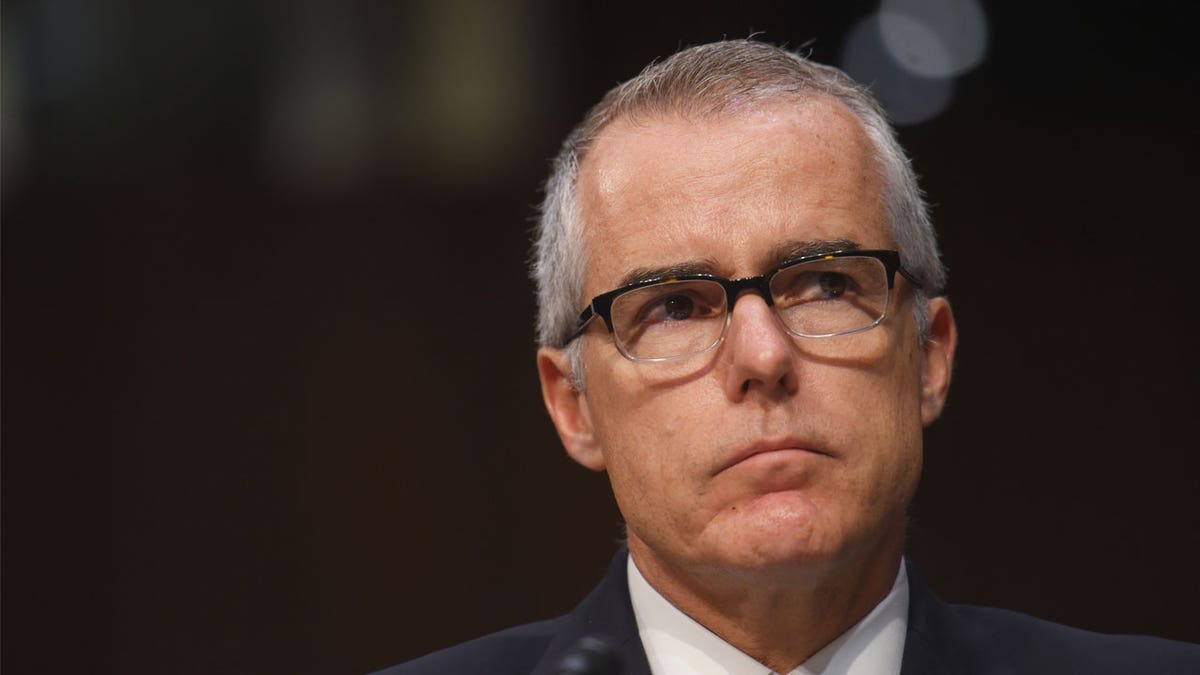
Former deputy FBI director Andrew McCabe was a leading figure in the origins of Russiagate while at the same time ordered the halting of probes investigating Hillary Clinton. (Jahi Chikwendiu/The Washington Post via Getty Images)
The deputy director, who according to Durham was "heavily involved in all aspects of the investigation," was made aware that the FISA warrant on Trump campaign adviser Carter Page would not have been approved without information pulled from the infamous Steele dossier, the Clinton campaign-funded memo authored by ex-British spy Christopher Steele which was later discredited by Durham and Inspector General Michael Horowitz. McCabe, in addition to then FBI Director James Comey, put on pressure to get the FISA warrant approved, pressing who his team needed to talk to at the DOJ "to get this going."
Following the release of the Durham report, McCabe decried that it was "not a legitimate investigation" but rather a "political errand" on behalf of Trump. He told CNN colleague Anderson Cooper he "absolutely" stands by the Russia investigation though acknowledging the errors with the FISA warrant on Page were "regrettable" and something he would have prevented had he known they were included.
John Brennan
Before joining MSNBC in 2018 as the national security and intelligence analyst, he served as President Obama's CIA director. Behind closed doors, he acknowledged to DOJ investigators in 2020 that intelligence agencies "found no conspiracy" between the Trump campaign and Russia. Brennan also publicly admitted on "Morning Joe" in 2019 following the conclusion of the Mueller probe that agencies may have "received bad information" and that he personally "suspected there was more" to prove collusion "than there actually was."
According to Brennan's own notes cited in the Durham report, he briefed Obama and other national security officials on intel that "alleged approval by Hillary Clinton on July 26, 2016 of a proposal from one of her foreign policy advisors to vilify Donald Trump by stirring up a scandal claiming interference by Russian security services." He then briefed Comey about his meeting with Obama the day prior but alleged to investigators he did not think he presented the intelligence regarding what Durham dubbed the "Clinton Plan" to the FBI director.
Days later, he met with Obama, then-Vice President Joe Biden and other top officials including then-Attorney General Loretta Lynch, briefing them all about the "Clinton Plan intelligence" among other material pertaining to Russian interference in the 2016 election.
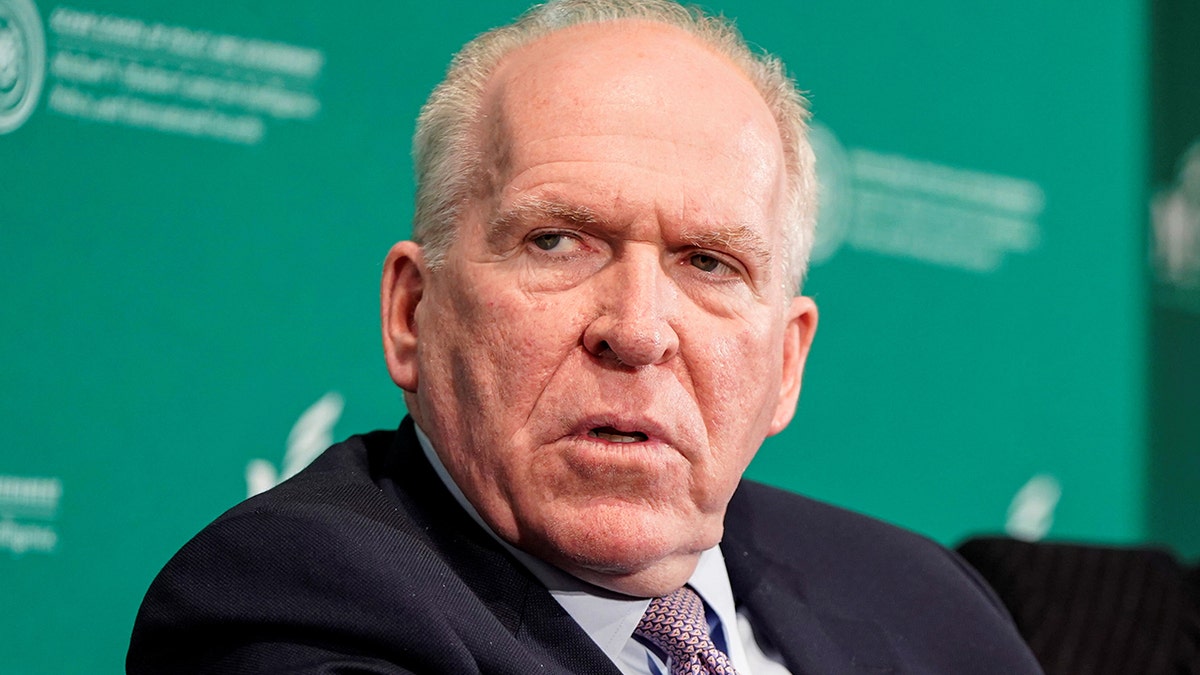
Former CIA director John Brennan, who joined MSNBC in 2018, insisted Trump's claims of no collusion were "hogwash." (Reuters/Joshua Roberts )
Despite his public acknowledgments in 2019 and his private knowledge of Clinton's scheme during the 2016 election, Brennan fueled legitimacy about Russiagate as the Mueller investigation was ongoing.
In March 2018, after Trump accused the Obama administration of starting an investigation into his campaign "with zero proof of wrongdoing" before the election, suggesting it was to help Clinton win, Brennan told him his tweet was "a great example of your paranoia, constant misrepresentation of the facts, and increased anxiety and panic (rightly so) about the Mueller investigation." Days later, Brennan suggested Trump's congenial relationship with Russian President Vladimir Putin was because Russia "may have things that they could expose and reveal" about him.
MEDIA RUSHES TO DISMISS DURHAM FINDINGS THAT FURTHER DEBUNKED BELOVED RUSSIAN COLLUSION NARRATIVE
In May 2018, Brennan called Trump's "SpyGate" accusations a "mischaracterization and dishonesty." And in an August 2018 op-ed he penned for The New York Times, Brennan asserted, "Mr. Trump’s claims of no collusion are, in a word, hogwash."
"The only questions that remain are whether the collusion that took place constituted criminally liable conspiracy, whether obstruction of justice occurred to cover up any collusion or conspiracy, and how many members of ‘Trump Incorporated’ attempted to defraud the government by laundering and concealing the movement of money into their pockets," Brennan wrote at the time.
Notably, Brennan was among the signatories from former intel officials who suggested the Hunter Biden laptop that surfaced during the 2020 election was Russian disinformation. Although they admitted they had no evidence, their influence over the media was obvious as liberal outlets ran with the dubious claim.
James Clapper
Former Director of National Intelligence-turned-CNN national security analyst James Clapper told Congress he was not aware of any evidence of Trump-Russia collusion in July 2017.
According to Durham's report, Clapper was among top national security officials to receive intelligence about Russian interference, which also included the Clinton Plan intelligence, in September 2016. He was later among those who briefed Obama about the existence of the Steele dossier in January 2017 and then President-elect Trump the next day, per Horowitz's report, which also showed Clapper advising Comey that he should brief Trump either one-on-one or within a small group of people to discuss the "sexual activities" that were claimed in the dossier. Clapper himself revealed to Comey that he discussed the dossier claims with Trump after BuzzFeed News published the memo in its entirety.
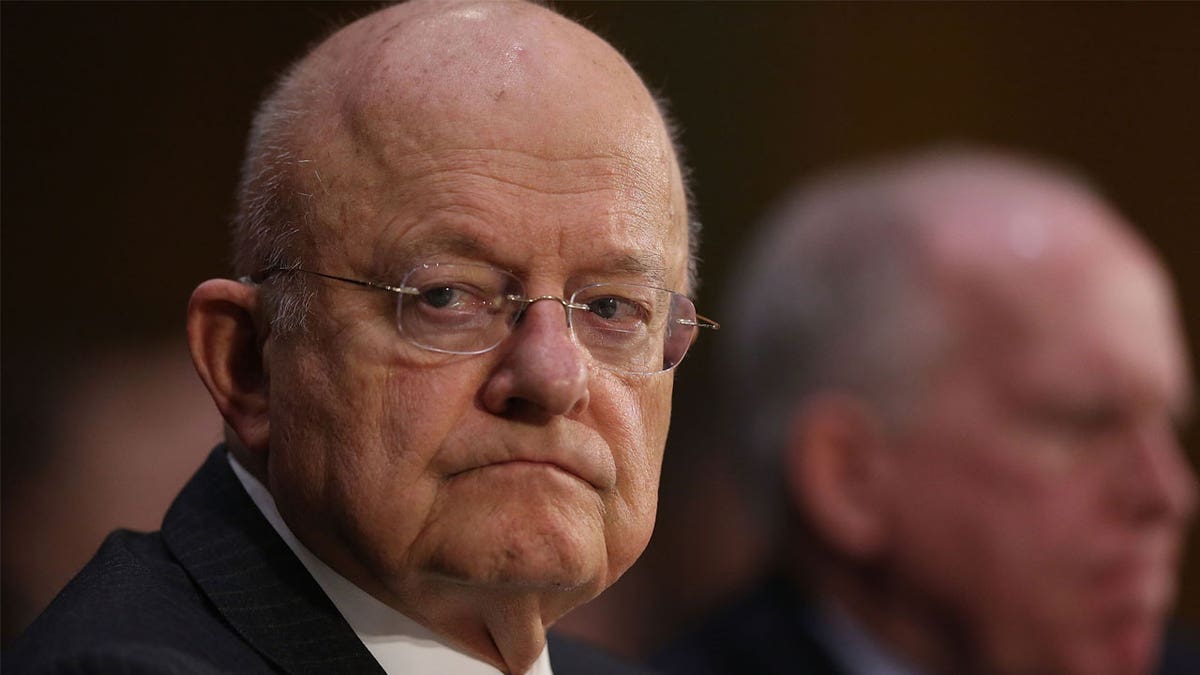
Former DNI James Clapper, who became a CNN national security analyst in 2017, called Christopher Steele "credible" and insisted "some" of what was in the now-infamous dossier was corroborated by the intel community. (Joe Raedle/Getty Images)
In May 2017, Clapper denied the notion that the Russia probe was either "fake news or a witch hunt." In May 2018, Clapper firmly said on "The View" there was no spying on the Trump campaign despite the fact that four investigations into George Papadopoulos, Carter Page, Paul Manafort and Michael Flynn were launched in August 2016.
Clapper was hired by CNN in 2017 despite his infamous lie to Congress in 2013 denying that the NSA was secretly surveilling millions of Americans, something that was leaked to the public by whistleblower Edward Snowden.
In January 2018, Clapper downplayed the role the Steele dossier played in getting the FISA warrant on Page, telling his colleague Jake Tapper that "some" of what was in the dossier was corroborated by the intel community and vouched for Steele as a "credible professional intelligence officer."
Like Brennan, Clapper also signed the now-infamous letter that pushed back at the legitimization of the Hunter Biden laptop in 2020.
Peter Strzok and Lisa Page
Perhaps the first high-profile DOJ figures to emerge from the Russia investigation were former FBI lawyer Peter Strzok and former FBI lawyer Lisa Page, who were the subject of headlines for having an extramarital affair, as well as their text exchanges exposing an anti-Trump bias that clouded the Mueller team's appearance of objectivity. It led to Strzok's removal from the investigation.
In one exchange from the lovebirds in February 2016 highlighted in Durham's report, Page suggested the FBI should tread lightly when it came to its investigation into Hillary Clinton, writing to Strzok, "One more thing: [Clinton] may be our next president. The last thing you need [is] going in there loaded for bear. You think she's going to remember or care that it was more doj than fbi?" to which Strzok replied "agreed."
Durham noted that Strzok and the FBI "did not act for over a month to pursue legal process to review thousands of missing Clinton emails found on [Anthony] Weiner's laptop" and that Strzok was specially criticized by Horowitz for the delay.
Both Strzok and Page were "directly involved in matters relating to the opening of Crossfire Hurricane," according to Durham. Strzok was the agent McCabe directed to launch a full investigation in July 2016 rather than a lesser assessment or preliminary investigation while Page at the time was McCabe's special assistant.
Just two days after he opened Crossfire Hurricane, Strzok and another agent flew to London to interview the Australian diplomats to discuss what Papadopoulos told them in May. Exchanges between the team and their colleagues based in the U.K. acknowledged that what they learned was "thin." But the investigation into Papadopoulous and the others carried on anyway.
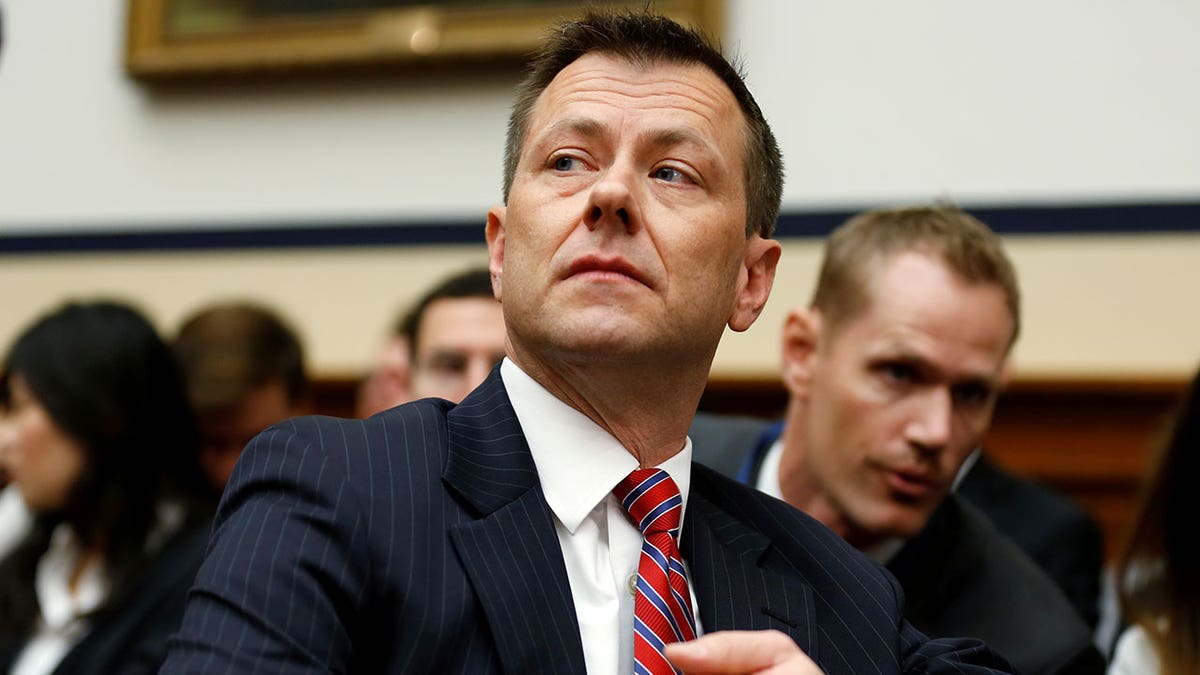
Ex-FBI official and frequent MSNBC guest Peter Strzok was the agent instructed to open Crossfire Hurricane in July 2016 at the direction of then-deputy FBI director Andrew McCabe. (Reuters)
In September 2016, Strzok and Comey were forwarded the so-called "Clinton Plan intelligence," which involved "U.S. Presidential candidate Hillary Clinton's approval of a plan concerning U.S. Presidential candidate Donald Trump and Russian hackers hampering U.S. elections as a means of distracting the public from her use of a private mail server."
A month later, Strzok message Kevin Clinesmith, the FBI lawyer who admitted to doctoring records that were submitted into the FISA warrant against Carter Page, that Steele's "unnamed client" was "presumed to be connected to the (Clinton] campaign in some way."
According to the report, FBI records prepared by Strzok in February and March of 2017 showed that the agency "had no information in its holdings indicating that at any time during the campaign anyone in the Trump campaign had been in contact with any Russian intelligence officials" when Crossfire Hurricane was first launched in July 2016.
FLASHBACK: EX-NYT WRITER SKEWERS MEDIA'S COVERAGE OF RUSSIAGATE AHEAD OF DURHAM REPORT
In March 2017, Strzok pushed back hard against a New York Times report that suggested "possible contacts between associates of [President] Trump and Russians" existed. Strzok's assessment, per Durham, was in part that "The FBI had not seen any evidence of any individuals affiliated with the Trump team in contact with Russian intelligence officers. He characterized this allegation as misleading and inaccurate as written."
Before joining Mueller's team in May 2017, Strzok expressed hesitation "in part, because of my gut sense and concern there's no big there there." Strzok was also the agent who was tasked by FBI lawyer James Baker to look into the debunked Alfa Bank claims floated by Clinton ally Michael Sussmann that alleged secret communications between the Trump Organization and the Kremlin-linked banked.
Meanwhile, Page testified that Crossfire Hurricane relied on analysts who were "super experts on Russia" when it was later determined they were "uniformly inexperienced."
When Deputy Assistant Attorney General Stuart Evans raised concerns to Page about Steele's political bias and shady sourcing ahead of getting the FISA warrant approved, she responded by saying per the Durham report, "We accept info from biased people all the time. Would look terrible if we pull our punch due to policy/political concern. We believe the info & sourcing is good." Evans also raised those concerns with Strzok.
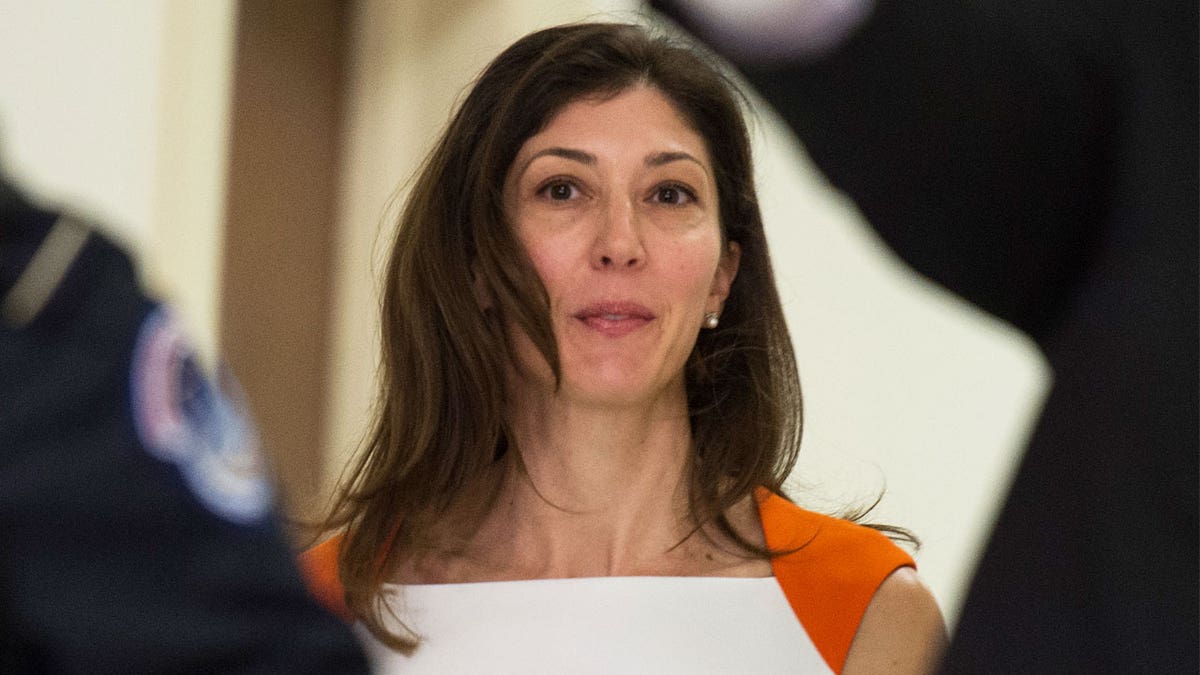
Former FBI lawyer Lisa Page defended the use of the Steele dossier when seeking the FISA warrant on Trump campaign adviser Carter Page. (ANDREW CABALLERO-REYNOLDS/AFP via Getty Images)
Both Strzok and Page left the DOJ in 2018 with his firing and her resignation. Page was hired by MSNBC in June 2020 while Strzok is an unpaid MSNBC regular, though he did capitalize on his New York Times best-selling book "Compromised: Counterintelligence and the Threat of Donald J. Trump" in September 2020.
On MSNBC, Strzok called Durham's report a "predictable, sad ending to an investigation that never should have taken place," accusing the special counsel of having a "cognitive bias." He also defended opening the full investigation over an assessment.
However, despite having not seen any evidence of Trump-Russia collusion, Strzok told NBC's Chuck Todd in 2020, "I believed at the time in 2016 and I continue to believe that Donald Trump is compromised by the Russians," adding "I mean that they hold leverage over him that makes him incapable of placing the national interest, the national security ahead of his own."
Page, too, defended the foundation of the Russia investigation, telling Rachel Maddow in 2019 "We were obligated to figure" whether "Russia is working with a United States person to interfere in our election."
Andrew Weissmann
While he was not mentioned in the Durham report, Andrew Weissmann also cashed in on his role as Mueller's "pit bull prosecutor."
Weissmann was heavily involved in the criminal probe against Manafort, a former chairman of the Trump 2016 campaign, according to Horowitz's report.
His ties to Democrats were the subject of intense scrutiny by GOP lawmakers at the inception of the Mueller probe. He donated at least $2000 to the Democratic National Committee in 2006 and made multiple contributions to Obama's 2008 presidential campaign totaling $2,300. Weissmann also attended Clinton's election-night party at Javits Center in New York City.
Eight months after he stepped down from Mueller's team near the end of their investigation, he was hired by MSNBC.
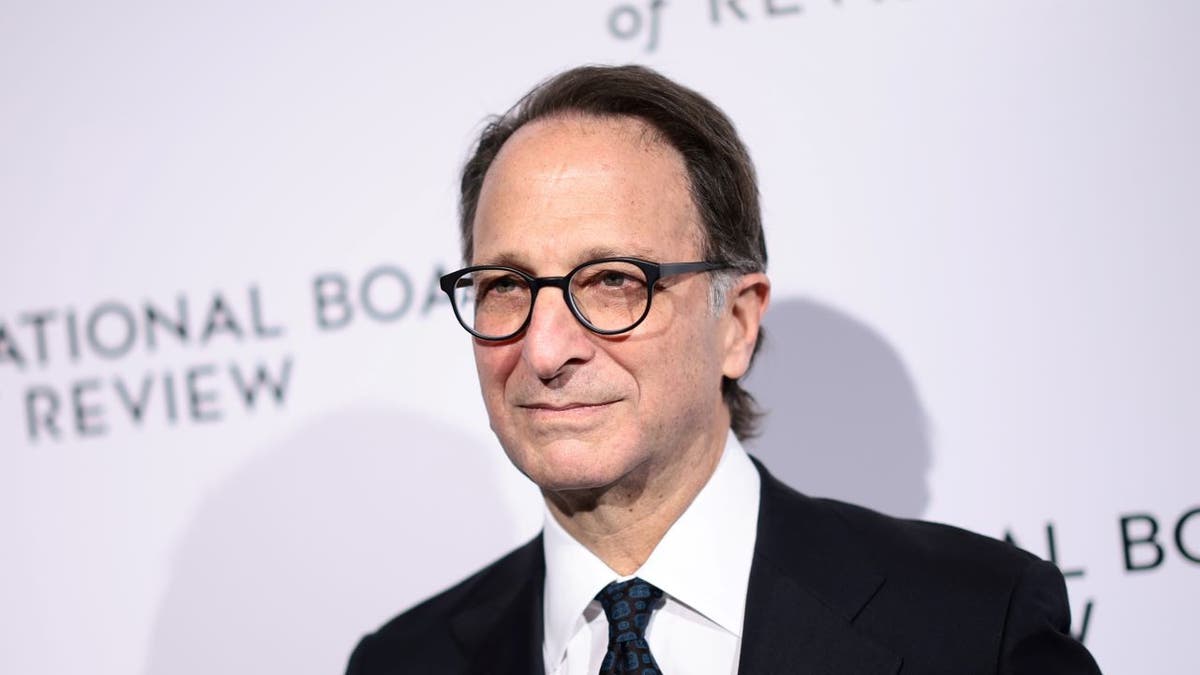
Andrew Weissmann, known as the Mueller "pit bull," landed a contributorship with MSNBC after leaving the special counsel's investigation. ((Photo by Dimitrios Kambouris/Getty Images for National Board of Review))
CLICK HERE TO GET THE FOX NEWS APP
Like McCabe, Weissmann shrugged off the Durham report, telling MSNBC colleague Nicolle Wallace the investigation into the Mueller probe "lacked substance."
"Russia interfered in the 2016 election… There are people who’ve gone to jail who are rightly found guilty, and what you have with John Durham is, like, it’s a big fat nothing," Weissmann said.





















